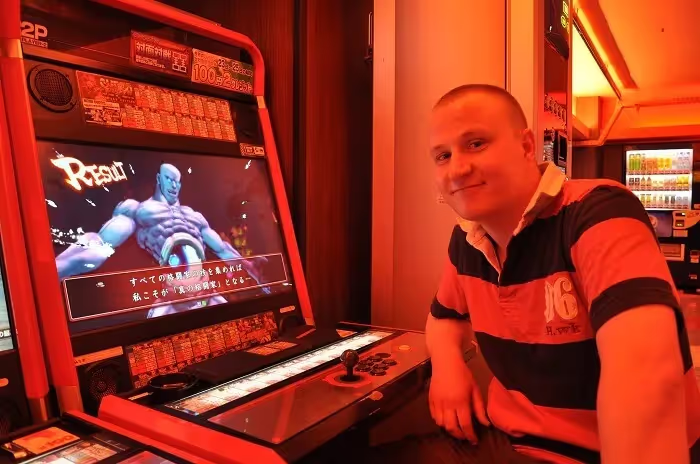A regular look at gaming-related stories from the past week or so whereby conclusions are drawn from anything and everything. These may be incredibly well reasoned based on events from the week. Alternatively, they may be highly speculative, drawn from very little evidence. More likely, they will be somewhere in between.
Conclusion One: We all know what Nintendo is like, so don’t spend 7 years trying to find out
Nintendo has the most glorious collection of game IP around. Its entire business model is built upon this fact; Nintendo maintains its platform with new iterations of its games to encourage people to buy the hardware to play Mario, Zelda and more, which confirms to Nintendo that its platform is working, and so on in an almost self-fulfilling cycle.
As such it’s notoriously protective of its IP, which means that any emulation, ports, copycats and so on over time have been stomped out pretty quickly.
It’s rather peculiar then that a developer — going by the nom de plume of ZeroPaige — would spend seven years porting Super Mario Bros. to the Commodore C64. It might be a wonderful achievement, and I hope the coder did it for their own benefit rather than anything else, as Nintendo has already sprung into action forcing sites to take the ROM down wherever it is visible, according to Torrentfreak.
A totally expected denouement, then, which begs the question — why? Only ZeroPaige knows for sure...
Conclusion Two: Anthem is the biggest ‘Game as a Service’ failure ever
These days, the creation of a platform and the offering of a game as a service (GaaS) is increasingly popular for all manner of developers and publishers. Why? It offers the opportunity for regular and persistent revenue. If you get it right you can invest similar monies and time as you would to a single-player AAA experience, but earn cash for a sustained period of time rather than the typical rush at release.
To make this work you need to have a good game at the very least — as well as sustained content — to both encourage new players to jump on board and more importantly, players in the endgame to hang around. With Anthem, BioWare and EA have spectacularly failed on pretty much every count and measure behind those in their attempt to deliver a Destiny-like experience.

Upon release we shared our concerns that the game itself was not great but if the next twelve months went well, it could still work. That was in March, and by the back end of April we now know that BioWare will not be delivering anything on its roadmap for April, isn’t ready to talk about anything much at all, and will likely bring very little to release — full stop — over the coming months.
BioWare used to make great games. EA basically lucked out on some of the most successful GaaS proponents in FIFA and Madden’s Ultimate Team modes. With this though, everything reeks of failure. The game is average at best, there’s no content, no endgame and nothing forthcoming. The devs might have faith in what they’re doing but by the time anybody else can verify it, nobody will be playing. Is this the biggest ever failure for a game as a service to date? Hell, yes.
Conclusion Three: Free to play? Depends on your currency…
It seems that despite all of the right noises coming from the industry regarding crunch, it’s still just business as usual for some game studios. Epic is the latest name to come under fire after Polygon this week published a damning report revealing that the Fortnite developer had employees regularly working 70 hours a week, with some even pulling 100-hour weeks in order to make the free-to-play battle royale game a hit.
Crunching — the process of working intense periods for weeks or months — has previously been associated with the final stages of a game’s development. Rockstar’s founders infamously talked about 100-hour weeks during the development of Red Dead Redemption 2, a move which triggered a huge backlash from the community and prompted the developer to eventually allow its employees to openly talk about their working experiences. However, as more and more games are shifting away from a traditional release model, that crunch period has become longer in an effort to sustain the success of free-to-play games, or those using the GaaS model.

Fortnite, it seems, is no different, and the studio knows it. A spokesperson told Polygon, “People are working very hard on Fortnite and other Epic efforts. Extreme situations such as 100-hour work weeks are incredibly rare, and in those instances, we seek to immediately remedy them to avoid recurrence.”
Yet it appears that Epic is showing no sign of letting up. A brutal patch release process means that any issues encountered in game need to be “fixed immediately” rather than putting it out with the next patch. And while Epic may claim that such long hours are rare, it appears that crunching is an expected part of a job role there. Some employees have reportedly refused to work weekends, resulting in missed deadlines — and were then fired because of it. Contractors in particular tread a dangerous path, since being seen not to crunch could lead to them not being renewed — whether or not crunching was an agreed part of their original contract. Employees are expected to stay late and without complaint, or face severe impediments to their career progression. “We’re always in crunch,” said one source. “Crunch never ends in a live service game like that. You’re always building more content and more stuff.” Another summed it up more brutally: “It’s killing people. Something has to change.”
It does. The model is simply not sustainable for employees, which is why bodies such as Game Workers Unite are developing a union — and if successful, it could shake up the way studios treat their staff. Paying lip service to change while still treating people as “bodies” will no longer suffice.
Conclusion Four: Valve gets offered an Epic opportunity
Meanwhile, in another part of the company, Epic’s founder Tim Sweeney threw down a gauntlet to Valve over exclusivity. Gamers have been grumbling recently that making games exclusive on the Epic Store doesn’t benefit them at all, since they are forced to flit between that or Steam to access different games on the same hardware. Yet developers currently get a much better deal with Epic, taking 88% of sales made through the Epic Store compared to the lowest tier of Steam which offers only 70% in its lowest tier (games making $10m and under), rising to 80% for games making over $50m.
When questioned on whether Epic would still run exclusivity deals with developers if Steam slashed its revenue cut, Sweeney pivoted expertly and said that if they committed to an 88% revenue share without major strings attached, they would remove themselves from exclusivity locks going forward and also look at putting titles from their own development studio on Steam.

“Major strings” in this case was clarified later as “games can use any online systems like friends and accounts they choose, games are free to interoperate across platforms and stores, the store doesn’t tax revenue on other stores or platforms (e.g. if you play Fortnite on iOS+PC),” and “if you play the game on multiple platforms, stuff you’ve bought can be available everywhere; no onerous certification requirements.”
Would Epic make good on this offer? Most likely. Will the challenge be accepted? Not a chance, and Sweeney knows it. It’s an excellent play from the underdog, shifting focus away from the exclusivity annoyance of the Epic Store and putting the ball back in Valve’s court, knowing full well that Steam is in a market-dominant position and would be a fool to relinquish that, but by not responding they would highlight the comparative unfairness of their cut.
Still, it’s another interesting development in a battle that has been building momentum for some time and which shows no sign of dissipating. Gamers may complain at having to install two different applications but ultimately they’ll go where the big games are — and in many cases, those games are exclusive to Epic. Well played, Tim.
Conclusion Five: The Switch keeps on growing - just not at E3
In a double whammy of news from the big N this week, it was announced that the Nintendo Switch has sold 34.74 million units in its lifetime. To put that in perspective, the Nintendo 64 sold just under 33 million, the Wii U sold just over 13.5 million and the GameCube sold over 21.7 million. The Switch is now the fourth highest selling console from Nintendo after the Wii (101.6 million), NES (61.9 million), and SNES (49.1 million). It’s a fantastic result in just two years, and there’s no doubt the plucky little hybrid will continue making gains to take the third spot over the next year or so.
However, if you were expecting to see the launch of two new Switch consoles at E3 this year, you’re in for a disappointment. Nintendo boss Shuntaro Furukawa announced during the company’s latest financial results that there will be no new hardware on display at the convention.
So it looks like you’ll have to wait a while for the next iteration of the console… unless Nintendo drop a surprise announcement in during E3 after all.
You can subscribe to Jump Chat Roll on your favourite podcast players including:
Let us know in the comments if you enjoyed this podcast, and if there are any topics you'd like to hear us tackle in future episodes!



